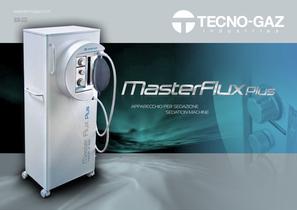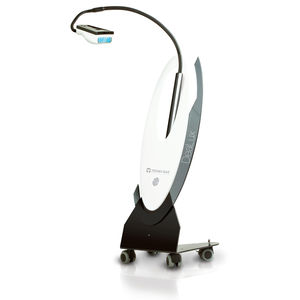

- Products
- Catalogs
- News & Trends
- Exhibitions
Wall-mounted anesthesia workstation Master Flux Plus
Add to favorites
Compare this product
Characteristics
- Ergonomics
- wall-mounted
Description
Analgesia is a technique in use for many years in the United States, Canada and various European countries. The controlled administration of oxygen and nitrous oxide by inhalatory route induces a relaxed feeling, reducing emotional stress. Anxiety and pain perception are reduced, increasing the amenability of the patient and facilitating collaboration with the physician, while maintaining the vital reflexes unaltered. Analgesia has no undesired effects and only general contraindications.
Paediatric dentistry
Children tend to suffer most from the problem of “dental anxiety”, which often manifests itself in a total lack of collaboration. The dentist is therefore subjected to inconvenience and loss of time. Conscious sedation resolves this problem, by saving time and facilitating the work of the dental staff. New masks available in sizes 1 - 2 - 3 - 4
The disabled
Very difficult kind of patient.
With conscious sedation, you can treat them in a simple way.
Implant dentistry
With this widespread technique, the patient must undergo long treatment sessions producing moments of
stress that sometimes result in “non-collaborative” behaviour, particularly at the most delicate moments. Conscious sedation helps the patient to be calm and cooperative during all the phases of the treatment session.
Dental phobias and other daily situations
The dental phobia problem is very widespread even in adults, causing them to keep well clear of dental surgeries.
Catalogs
MasterFluxPLUS
20 Pages
Related Searches
*Prices are pre-tax. They exclude delivery charges and customs duties and do not include additional charges for installation or activation options. Prices are indicative only and may vary by country, with changes to the cost of raw materials and exchange rates.












